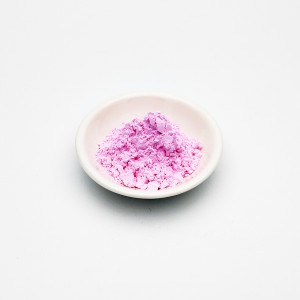Introduction:
Erbium oxide, commonly known as Er2O3, is a versatile compound with a wide range of applications. This rare earth element plays a vital role in a variety of industries, from making special luminous glasses and glass colorants to control materials in nuclear reactors. Additionally, erbium oxide can be used as a fluorescence activator, and its magnetic properties make it an ideal candidate for making glasses that absorb infrared radiation. In this blog, we will explore the various applications and benefits of erbium oxide, illuminating its fascinating role in several key areas.
Luminous glass:
One of the most notable uses of erbium oxide is in the production of luminescent glass. Erbium ions act as powerful fluorescence activators in the glass, emitting visible light when excited by an external energy source. This feature allows the creation of bright and vibrant displays in electronic devices and energy-saving lighting systems. The unique emission properties of erbium oxide make it a first choice for applications such as fiber optic communications, laser technology and high-resolution displays.
Infrared absorption:
Another important application of erbium oxide is its ability to absorb infrared (IR) radiation. By adding erbium oxide to the glass composition, manufacturers can design glass that effectively filters out harmful infrared rays while allowing visible light to pass through. This property has proven invaluable in applications such as thermal imaging systems, sunscreen, and protective eyewear, as it helps minimize damage caused by overexposure to infrared radiation.
Glass stain:
Erbium oxide is capable of producing a variety of vibrant colors, making it a popular choice as a glass stain. By varying the concentration of erbium oxide, manufacturers can create different shades of glass, providing endless possibilities for architects, interior designers and artists. The stunning color palette offered by erbium oxide reinforced glass can be applied to decorative glassware, stained glass windows and building facades.
Control materials:
The excellent magnetic properties of erbium oxide make it an important candidate for the production of nuclear reactor control materials. The compound's ability to absorb neutrons and remain stable at high temperatures ensures efficient and safe operation of the reactor. Its use in this case helps regulate the fission process and prevent potential accidents, further highlighting the important role erbium oxide plays in nuclear power generation.
In conclusion:
Erbium oxide has a wide range of applications and is of great value in multiple industries. Whether it's enhancing the visual experience through luminescent glass or aiding in the safe operation of nuclear reactors, the versatility of erbium oxide continues to shape our modern world. As researchers discover more applications for this rare earth element, we can expect further advancements and innovations to harness the potential of erbium oxide to achieve a sustainable and technologically advanced future.
Post time: Oct-31-2023
